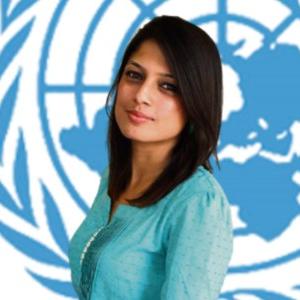Concerted Efforts Required To Mobilize Finance For Sustainable Development In Nepal
20 August 2024
Finance for Development Dialogue concludes in Nepal with action points focused on mobilizing sufficient financial resources and channeling them in support of the SDGs
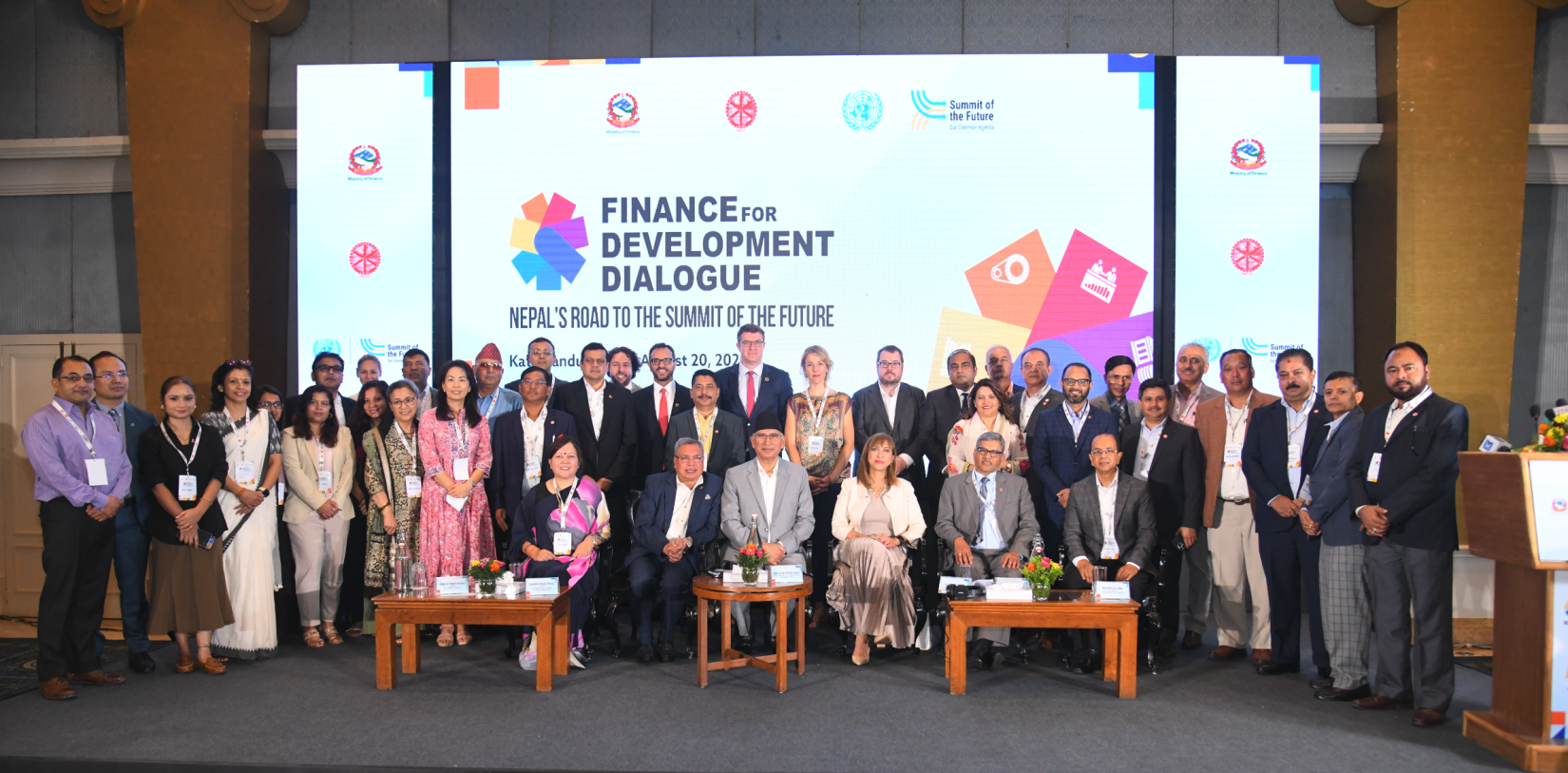
Kathmandu, August 20: The Government of Nepal, the private sector, and the UN in Nepal have emphasized on mobilizing sufficient development finance to achieve Nepal’s key development targets including the SDGs.
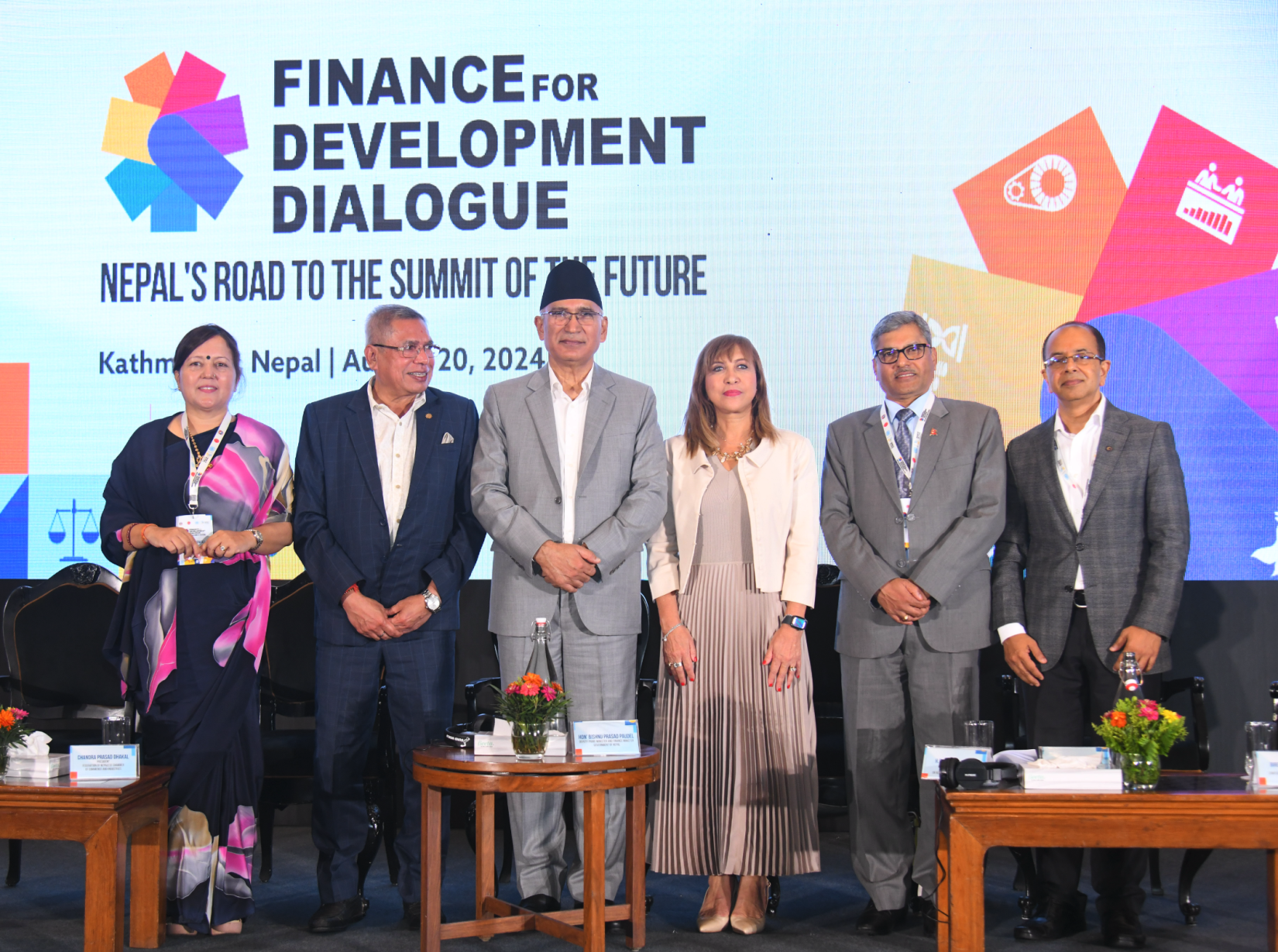
During The Financing for Development Dialogue: Nepal’s Road to the Summit of the Future organized by the United Nations Nepal (UN Nepal) in partnership with the Ministry of Finance (MOF) and the Federation of Nepalese Chambers of Commerce and Industry (FNCCI), Nepal’s pertinent stakeholders in finance and development highlighted the requirement of additional investment to achieve sustainable development and accelerate structural transformation of the economy.
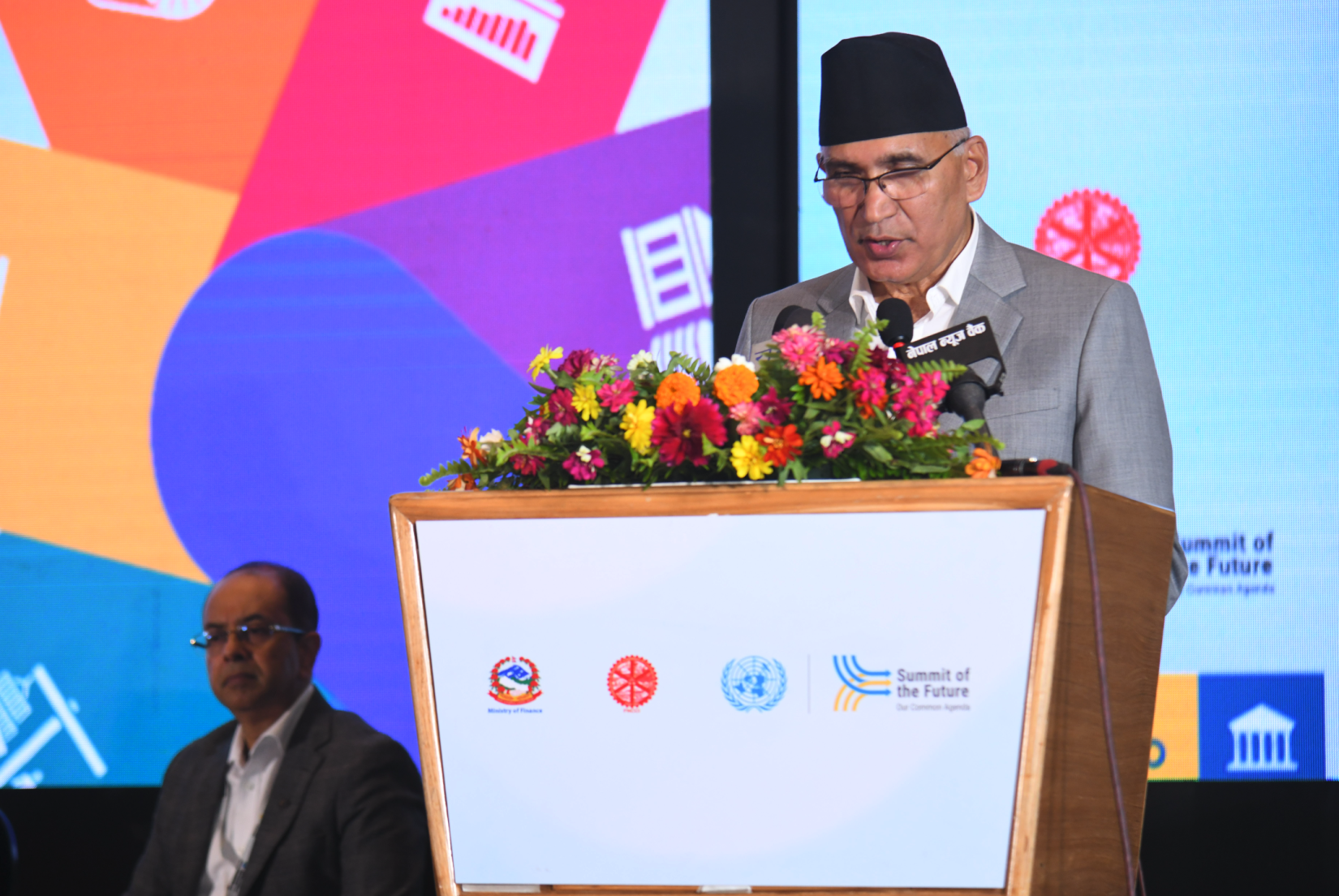
Speaking at the inauguration session, the Deputy Prime Minister and Finance Minister Bishnu Prashad Poudel pointed out that in developing countries, a significant portion of revenue is spent on debt servicing, leaving little for development investment. He emphasized that Nepal is no exception and called for collaboration between the government, private sector, and development partners to mobilize resources. He also stressed the importance of formulating a common position for the upcoming Summit for the Future at the United Nations and noted that this dialogue would contribute to that effort.
Four years after a series of global shocks – including the COVID-19 pandemic, geopolitical conflicts and economic instability – the SDG financing gap for developing countries like Nepal has ballooned to USD 4 trillion annually. The financing gap and accompanying debt challenges have worsened poverty and inequality, putting the world off track to meet international targets set in 2015.
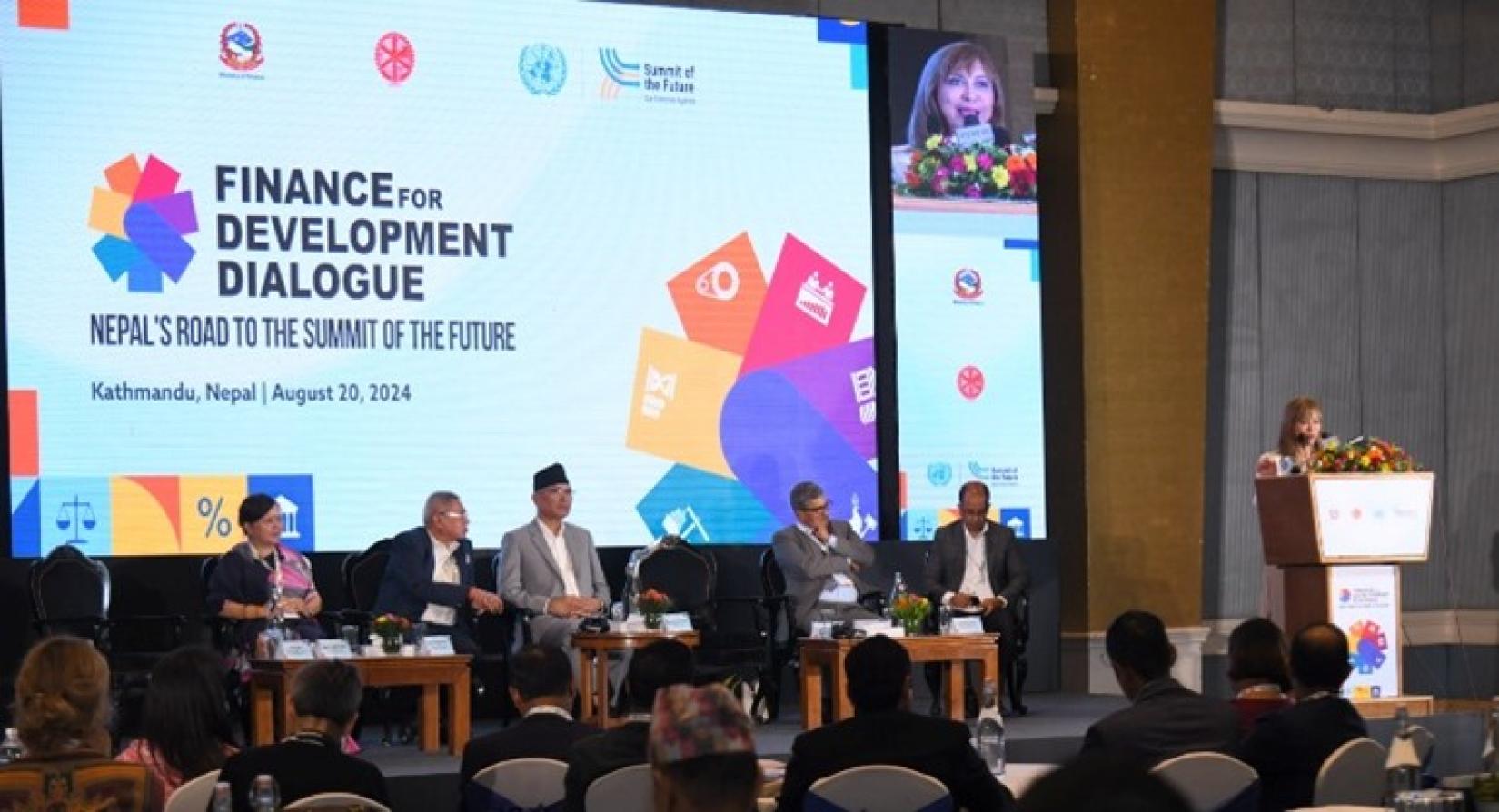
The UN Resident Coordinator in Nepal Ms. Hanaa Singer-Hamdy underlined that as Nepal spearheads towards graduation from its Least Developed Country status, bold and decisive actions to strengthen economic foundations is needed by focusing on domestic reforms, advancing financial inclusion and gender equality, embracing digital transformation, and advocating for international cooperation.
Chandra Prasad Dhakal, President of the Federation of Nepalese Chambers of Commerce and Industry, highlighted the need for efforts at all levels to mobilize investment for development, particularly in the context of declining foreign direct investment, revenue, and foreign aid. He also mentioned that the federation has been organizing special programs to promote investment in Nepal and abroad and that a facilitation desk has been established to assist with foreign investment.
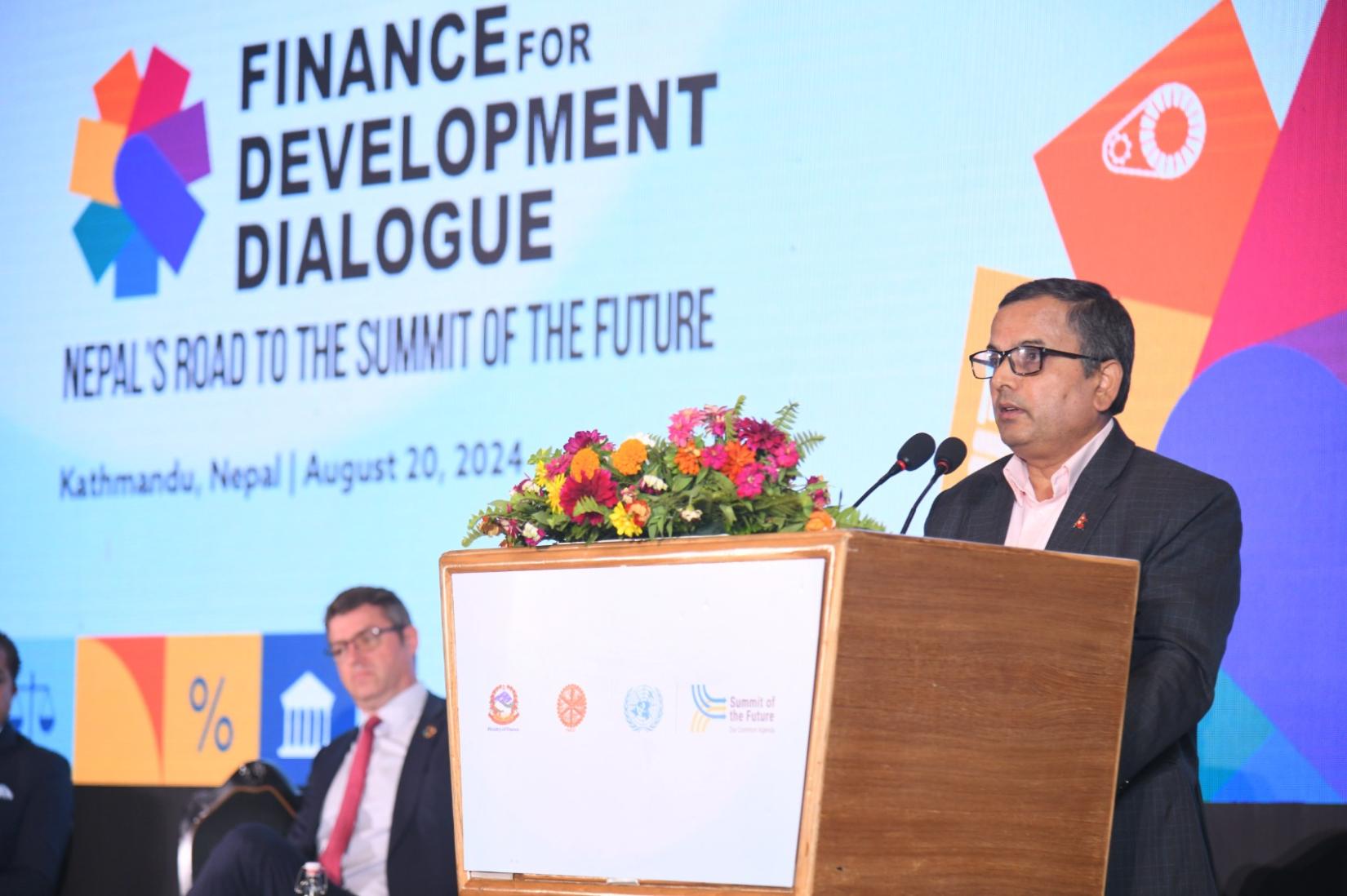
In the dialogue, participants dived deep into the most pressing issues for accelerating progress towards SDGs—financing or lack of it—at the time of rising geopolitical tension, post-pandemic weaker economic recovery, more frequent and intense climate-related crisis, existing inequalities and disparities including those related to gender and social marginalization, and a new trade dynamic driven by protectionism and disengaged multilateralism, among others.
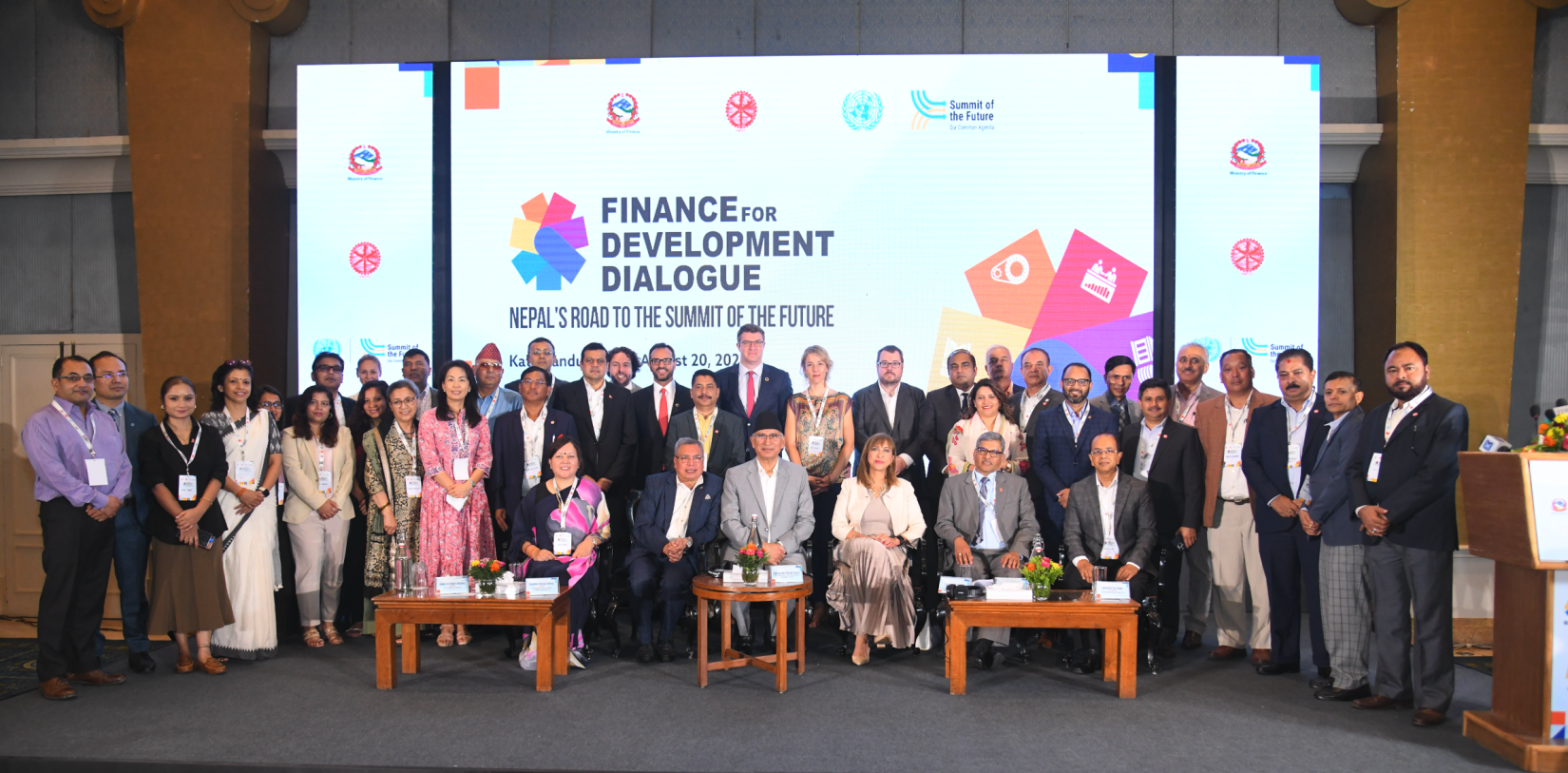
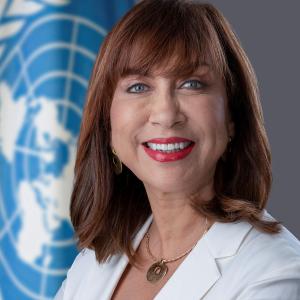
Hanaa Singer-Hamdy
Prior to this, she held several senior management positions in UNICEF offices across the world, including as the Associate Regional Director in Geneva and as Country Representative for Syria, Nepal, Kazakhstan and Azerbaijan.
In Syria, she provided strategic leadership to one of the largest protection crises on the global stage – successfully scaling up programmes through an integrated package of high impact interventions in health, nutrition, water and sanitation, education and child protection - increasing the reach of UNICEF’s work to the most vulnerable children including in besieged and hard-to-reach areas.
As UNICEF Chief in Nepal, she pioneered strategic programmes for scaling up sanitation, adolescents and multisectoral nutrition programmes, establishing strategic new alliances resulting in the government adopting national action plans. She has also led humanitarian programmes in Burundi and Haiti, and as a regional emergency advisor for CEE/CIS countries coordinated setting up cross border humanitarian operations to Afghanistan ,from central Asia, and Iraq,from south Turkey. She also provided technical support to emergency preparedness programmes in the North Caucasus, CEE/CIS countries .
Ms. Singer-Hamdy holds a Master's degree in Political Sociology and a Bachelor's degree in Political Science from the American University in Cairo, Egypt. She obtained a diploma in “Planning and Management of Decentralized Development Projects” from Bradford University in the United Kingdom. Ms. Singer-Hamdy has engaged in academia and research in political sociology and international relations at the American University of Cairo and at the Sadat’s Academy for Management Sciences, Faculty of Political Science of Cairo University.
